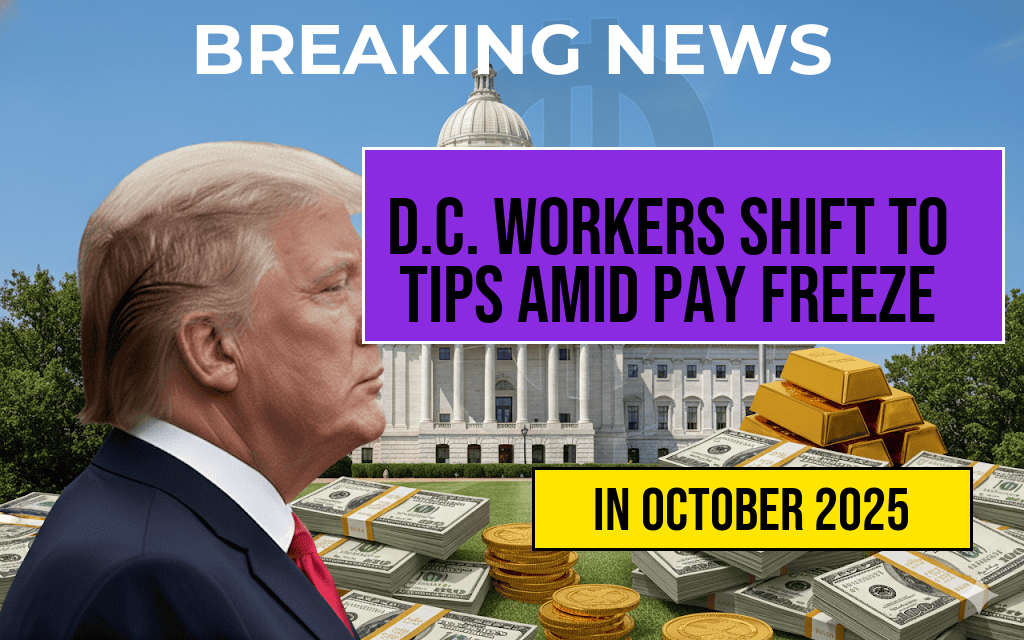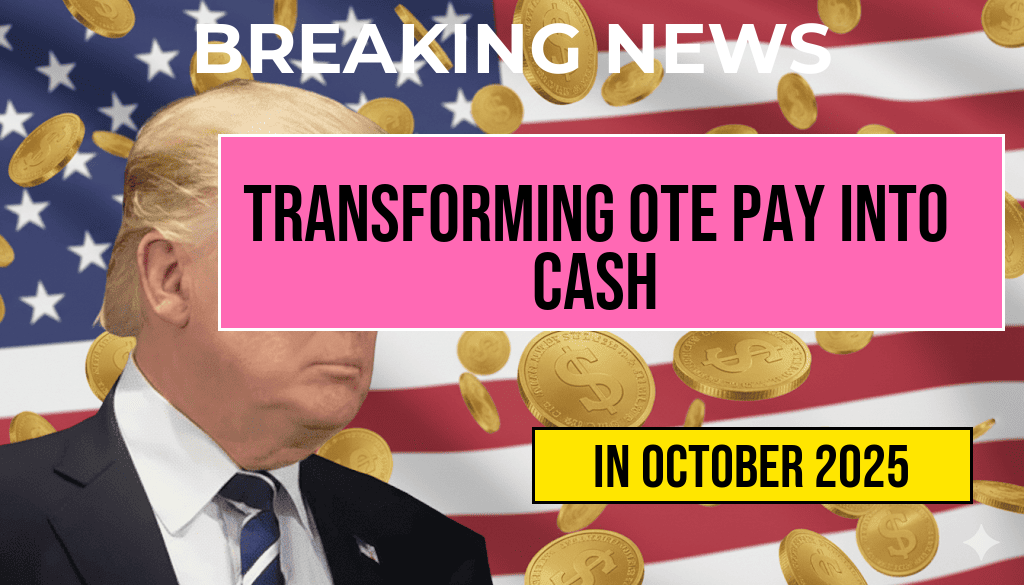In a surprising turn of events, numerous workers in Washington D.C. are navigating a challenging economic landscape marked by a $10 base pay freeze. This situation has led to a significant shift in the compensation structure for many service employees, particularly those in the hospitality industry. As base wages remain stagnant, hundreds of workers are increasingly relying on tips as their primary source of income each week. The reliance on gratuities is reshaping not only individual earnings but also the dynamics of workplace morale and customer interaction.
Understanding the Pay Freeze
The D.C. pay freeze, implemented as part of a broader economic strategy, has put pressure on service workers who traditionally depend on tips to supplement their incomes. The current minimum wage in the district stands at $16.10 per hour, but workers who earn tips face a much lower base rate of $5.00. This disparity has prompted many employees to seek additional opportunities for earning through tips, leading to a substantial increase in the number of workers shifting their focus toward this income source.
The Impact of Reduced Base Pay
- Increased Financial Strain: Many workers report that the pay freeze has made it difficult to meet basic living expenses.
- Shift in Work Dynamics: Employees are increasingly motivated to provide better service in hopes of receiving higher tips.
- Job Satisfaction: The reliance on tips can lead to job insecurity and fluctuating income, impacting overall morale.
Shifting Trends in the Service Industry
Data indicates that the number of workers relying on tips has surged, with reports suggesting that in some establishments, up to 70% of earnings now come from gratuities. This trend is particularly evident in restaurants and bars, where the customer experience is directly tied to the service quality. Workers are adapting to this environment by honing their skills in customer engagement and service delivery to maximize their earning potential.
Challenges Faced by Workers
Despite the potential for higher earnings through tips, many workers face significant challenges:
- Inconsistent Income: Tips can vary widely based on customer volume and generosity, leading to unpredictable weekly earnings.
- Pressure to Perform: The necessity to provide exceptional service can create stress and anxiety among employees.
- Health and Safety Concerns: Employees are often on the front lines during health crises, impacting their job security and income.
Public Reaction and Policy Considerations
The freeze on base pay has sparked discussions among policymakers, labor advocates, and the public. Many argue that the current wage structure is unsustainable and disproportionately affects lower-income workers. Advocacy groups are calling for reforms to ensure a livable wage that does not rely heavily on tips. Some proposals include:
| Proposal | Description |
|---|---|
| Increase Base Pay | Raising the minimum wage for tipped employees to align closer with the standard minimum wage. |
| Tip Credit Reform | Eliminating the tip credit system to ensure all workers receive a guaranteed wage. |
| Enhanced Worker Protections | Implementing policies that protect workers from wage theft and ensure fair treatment. |
Looking Ahead
As the dialogue around wage reform continues, the future of tipped workers in D.C. remains uncertain. With many relying heavily on tips to make ends meet, the need for a stable and fair wage system is more pressing than ever. Stakeholders from various sectors are expected to engage in discussions aimed at addressing these challenges and finding viable solutions that support both workers and businesses.
For further information on wage policies, visit Wikipedia’s Minimum Wage page or learn more about labor rights at Forbes.
Frequently Asked Questions
What is the reason for the $10 base pay freeze for D.C. workers?
The $10 base pay freeze for D.C. workers is primarily due to ongoing economic challenges and budget constraints faced by local businesses, which have led to discussions about worker compensation adjustments.
How are workers adapting to the pay freeze?
Many workers are adapting to the pay freeze by shifting their focus to generating income through tips. This change has resulted in hundreds of workers relying on tips as a significant portion of their weekly earnings.
What types of jobs are most affected by the pay freeze?
Jobs in the service industry, such as waitstaff, bartenders, and other hospitality roles, are most affected by the pay freeze, as these positions often rely heavily on tips for their overall compensation.
Are there any plans to address the pay freeze in the future?
While specific plans to address the pay freeze have not been detailed, local government officials and business leaders are in discussions about potential solutions to improve worker compensation and support the economy.
What impact does the pay freeze have on the overall economy in D.C.?
The pay freeze can have a ripple effect on the overall economy in D.C., as reduced base pay may lead to decreased consumer spending, affecting local businesses and potentially impacting job stability in the service sector.








